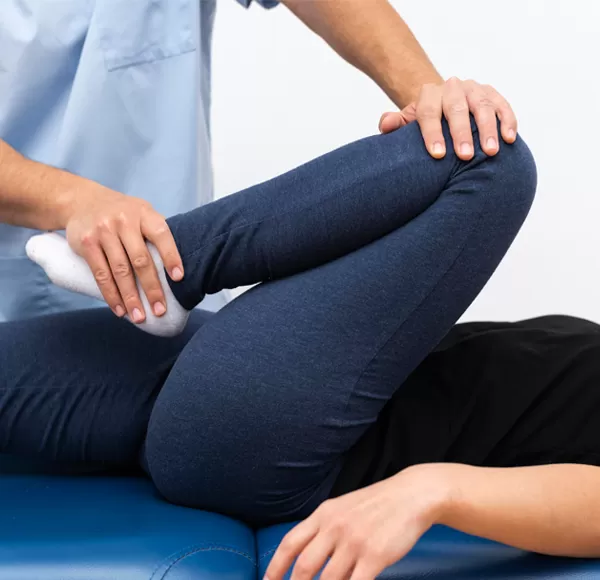
If you're living with a neurological condition and struggling with daily activities, you're not alone. Specialized care and therapy can help you regain independence and improve your quality of life.

If you're wondering whether it's possible to improve your motor skills and regain independence, the answer is yes. With the right therapy and support and meaningful progress is within reach.
Recovering after a neurological event but still facing challenges with movement, coordination, or cognition? Neurological recovery can be a vital step on your journey to regaining independence and quality of life.
Neurological restoration involves therapies that help the brain, spinal cord, and nerves recover function after injury or disease.
Physiotherapists play a key role by improving:
Symptoms can include muscle weakness, poor coordination, difficulty walking, numbness, tremors, speech problems and memory or cognitive difficulties. A physiotherapist assesses these issues and designs a rehabilitation plan to address them.
Many people can recover partially or fully from neurological conditions with early diagnosis,. Physiotherapy and comprehensive rehabilitation. While full recovery depends on the severity of the condition. Physiotherapy can significantly improve mobility and independence.
Healing time varies based on the extent of the injury, the individual’s health and the type of therapy received. Physiotherapy supports healing by promoting neuroplasticity. The brain’s ability to rewire and adapt, which may take months or even years in some cases.
Neurological issues are managed through a multidisciplinary approach including:
Physiotherapy: Restoring movement, improving strength, managing spasticity and promoting functional independence.
Occupational therapy: Helping patients relearn daily activities and improve fine motor skills.
Medication: Controlling symptoms such as pain, seizures, or muscle stiffness.
Surgery: In some cases, surgery may be required to repair structural damage or relieve pressure.
Neurological rehabilitation is based on promoting recovery through repetitive, task specific exercises, encouraging neuroplasticity, preventing complications and helping patients regain independence in daily life. Physiotherapists tailor programs to meet each patient’s unique needs.
Physiotherapy helps manage a variety of neurological conditions, including:
Stroke: Assisting with regaining mobility, balance, and strength.
Spinal cord injury: Improving motor function, preventing muscle stiffness, and enhancing independence.
Traumatic brain injury: Supporting recovery of movement, coordination, and cognitive function.
Parkinson’s disease: Managing balance issues, improving mobility, and reducing the risk of falls.
Multiple sclerosis: Enhancing strength, flexibility, and endurance to slow progression of disability.
Cerebral palsy: Improving muscle control, posture, and functional mobility.
Peripheral neuropathy: Managing symptoms such as numbness, weakness, and pain to improve daily function.
Each condition requires a personalized rehabilitation plan tailored to the patient’s specific needs.
Neurological rehabilitation programs often include physiotherapy for movement recovery, occupational therapy for daily living skills, speech therapy for communication, and cognitive rehabilitation for memory and attention skills.
Neurological rehabilitation, particularly physiotherapy, can lead to significant improvements, including:
Enhanced mobility: Helping patients walk, move, and perform daily activities more easily.
Increased strength: Building muscle power and endurance for better physical function.
Improved balance: Reducing the risk of falls and enhancing stability.
Greater independence: Allowing patients to regain confidence and autonomy in daily life.
With consistent therapy and goal-oriented exercises, many patients experience a major boost in their overall quality of life
